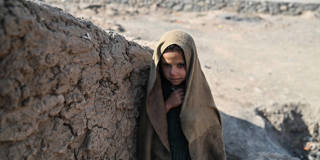Whether viewed through the eyes of its long-suffering people or from the perspective of Western politicians’ self-interest, the current meltdown in Afghanistan is a nightmare. The international community must act, and there are three things in particular that it can do without rewarding the Taliban.
EDINBURGH/GENEVA – It is now more than four months since the dramatic exit of US and other Western forces from Afghanistan. By chartering special flights, loosening asylum rules, and releasing funds, Western countries airlifted a few thousand lucky Afghans to safety as the Taliban retook control of the country. But those left behind have been shut off from the rest of the world – whether or not they are Taliban supporters.

EDINBURGH/GENEVA – It is now more than four months since the dramatic exit of US and other Western forces from Afghanistan. By chartering special flights, loosening asylum rules, and releasing funds, Western countries airlifted a few thousand lucky Afghans to safety as the Taliban retook control of the country. But those left behind have been shut off from the rest of the world – whether or not they are Taliban supporters.